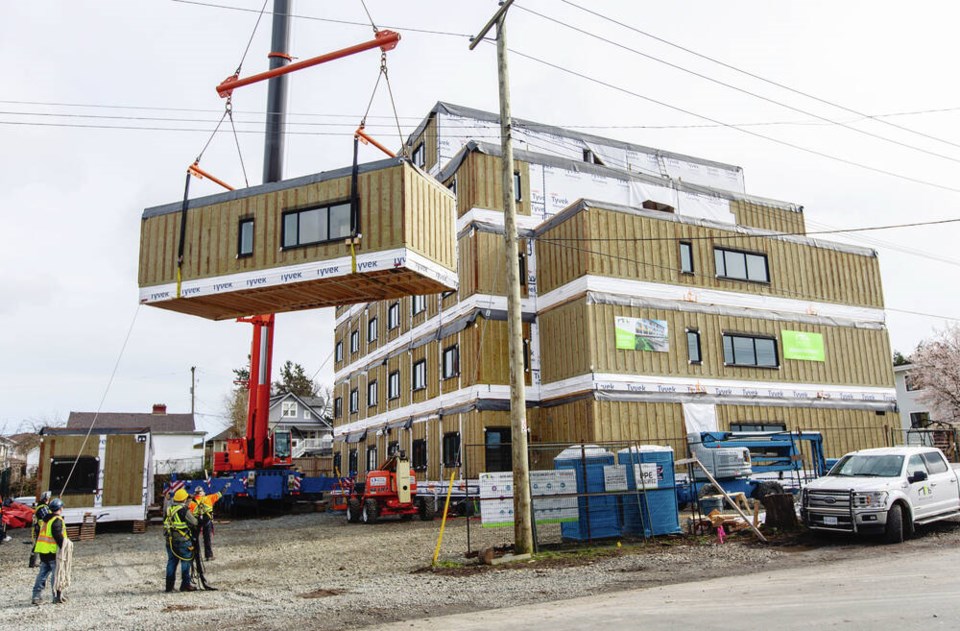A supportive-housing project marked a key construction milestone Friday with the fitting of the last pre-fabricated module in what will eventually be a five-storey, 52-unit complex for people at risk of homelessness.
The project, at 2933 and 2949 Albina St. in the Gorge-Tillicum area of Saanich, is one of six projects initiated by B.C. Housing that will provide about 280 supportive homes for people experiencing homelessness in the capital region.
B.C. Housing expects the project to be completed in August, with occupancy expected soon after.
When it’s finished, the Albina Street project will feature 52 self-contained studio apartments — with five designated accessible suites — and support services on-site, including support workers, life skills training, employment assistance, referral to community services and support groups.
The individual units, which are approximately 12 feet wide by 24 feet long, come equipped with a bathroom, sitting and dining area, refrigerator, sink and a cooking surface.
The complex, which will be managed by Our Place Society, will include common areas, counselling, medical and support rooms, commercial kitchen and in-house laundry facilities. Amenities include a staffed reception, bicycle storage, electric vehicle charging stations and a community garden.
Pre-fabricated modular construction was selected because it’s not only faster, it generally results in less construction waste, making it a more sustainable method of construction, B.C. Housing says.
Each 12-foot-wide, 12-foot-tall and 63-foot-long module is manufactured in Kamloops and transported to the development site. On site, a crane lifts each module off a transport truck and places it on top and beside the others.
The Albina Street project called for the use of 40 pre-fabricated modules. All electrical, plumbing, drywall, walls, doors and windows are already installed. Workers on site are responsible for attaching the units to each other, and hooking up the plumbing and electrical services. Some items, such as the installation of the elevator, have to be custom-made on the site.
The time involved for site preparation and pouring the foundation for the structure is the same as for conventional construction, but modular construction makes for a much speedier building process.
At Albina Street, the first modular unit was placed on March 9 by NRB Modular Solutions, the principal contractor. The last unit was hoisted into place nine days later (with no work on Sunday).
Finishing work, including exterior cladding, paving and landscaping, will take up to four months to complete.
The residents — many of them living in temporary shelters or temporarily housed in hotels — will be selected through an individual assessment process by B.C. Housing in consultation with Our Place.
B.C. Housing will provide the operating budget for the housing and Our Place Society will be responsible for property and operations management.
Another 36-unit modular housing complex is planned for Catherine Street, while a larger one is planned for Sooke.



